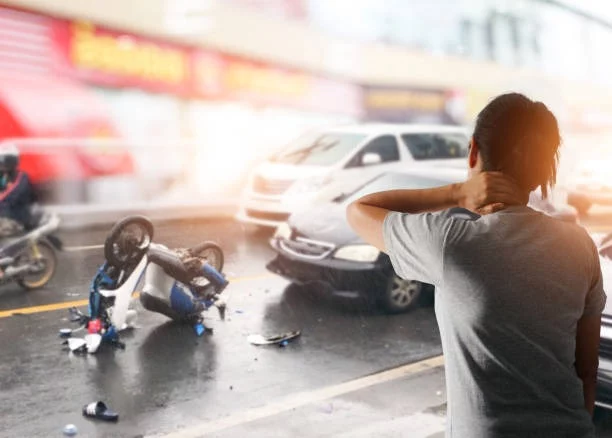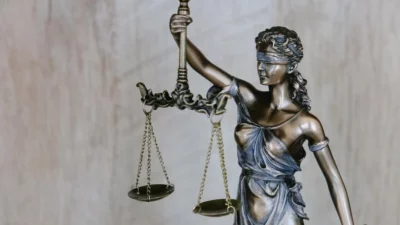If you ride a motorcycle in Colorado, understanding how the law handles fault can make a big difference. The state employs a doctrine known as comparative negligence, which allows more than one person to be held responsible for a crash. Denver motorcycle accident attorneys often see cases where a rider’s compensation is reduced simply because they were found even slightly at fault. Knowing how this works can help you protect yourself on the road. Let’s break it down in a way that’s easy to understand.
What Comparative Negligence Means in Plain English
Comparative negligence is a legal principle that determines the percentage of fault assigned to each person in a crash. Instead of one person being fully at fault, responsibility can be split, like 70 percent on one driver and 30 percent on another. For riders, this means you can still recover money even if you were partly at fault, but your payout might be reduced based on your share of the blame.
How Fault Is Determined in Colorado
In Colorado, fault is determined using a “modified comparative negligence” rule. If you’re found to be 50 percent or more at fault, you can’t recover any damages; but if you’re less than 50 percent responsible, you can still get compensated, just at a reduced amount. That’s why figuring out who did what (and proving it) matters so much in any case involving a motorcycle.
Why This Law Matters for Riders
This law matters because even a small share of the blame can cut into what you’re owed after a crash. For riders, who often face bias or assumptions about fault, that can mean walking away with less than they deserve. Understanding how the system works helps you push back and protect your rights.
Tips to Protect Yourself as a Rider
Staying safe on the road is always priority number one but protecting yourself legally is just as important. Here are a few simple, smart ways to help reduce your risk and strengthen your position if something does happen:
Follow Traffic Laws at All Times
Even small infractions, like rolling through a stop sign or going a few miles over the speed limit, can be used against you later. The cleaner your riding record, the stronger your case if blame is ever in question.
Wear Proper Safety Gear
Wearing a helmet and visible gear not only protects you physically. It also shows that you’re a responsible rider. This can work in your favor when fault is being evaluated.
Stay Visible and Predictable
Use your signals, avoid blind spots, and make sure drivers see you before making any moves. If a crash happens, showing that you rode defensively can help reduce your share of fault.
Keep Your Motorcycle Well Maintained
Bald tires, broken lights, or faulty brakes can make it easier for others to argue that you contributed to a crash. Regular maintenance shows you take safety seriously.
Document Everything After a Crash
Take photos, get witness names, and write down exactly what happened as soon as you can. The more details you have, the harder it is for insurance companies to shift blame unfairly.
When to Talk to a Legal Professional
Sometimes, even when you do everything right, legal situations can get complicated fast. Here’s when it makes sense to reach out to a professional who understands what riders go through:
You are Being Blamed for Something You Did Not Cause
If the other party or their insurance company is trying to shift the blame onto you, it’s time to get help. A legal professional can review the evidence and present facts, rather than relying on guesswork.
Your Injuries are Serious or Long Term
When you’re dealing with medical bills, time off work, or lasting pain, it’s important to make sure you’re fully compensated. An attorney can help calculate what your case is really worth beyond just the immediate costs.
The Insurance Company is Offering a Low Settlement
Insurers sometimes throw out quick offers hoping you’ll settle for less than you deserve. A lawyer can negotiate on your behalf and make sure you’re not being shortchanged.
You are Not Sure Who Was at Fault
In some situations, it can be genuinely challenging to determine who caused what, especially when multiple vehicles are involved. A legal expert can help investigate and clarify your role under Colorado’s comparative negligence law.
You Just Want to be Sure You are Protected
Even if everything seems straightforward, it’s always a good idea to get a second opinion. A quick conversation with an attorney can give you peace of mind and help you avoid costly mistakes.
Final Thoughts
Understanding how fault works under Colorado’s comparative negligence laws can make a big difference if you ever find yourself in a tough situation. Staying informed and riding responsibly helps protect both your safety and your rights. And if you ever need guidance, Denver motorcycle accident attorneys are here to make sure you’re treated fairly every step of the way.

Lexy Summer is a talented writer with a deep passion for the art of language and storytelling. With a background in editing and content creation, Lexy has honed her skills in crafting clear, engaging, and grammatically flawless writing.



